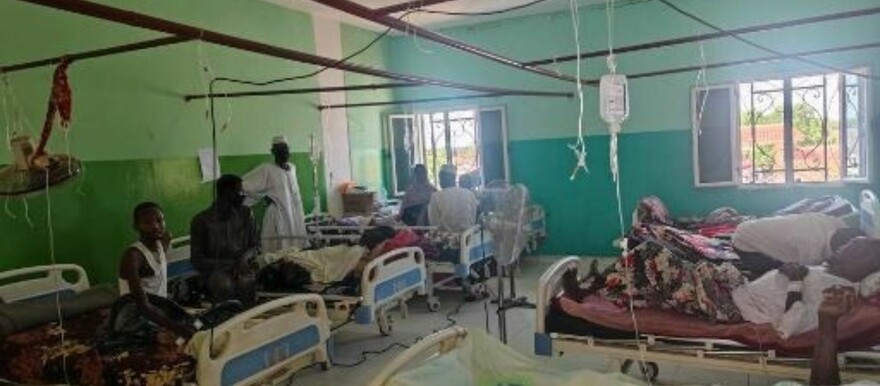A team of health officials from Sudan’s North Darfur State on Tuesday visited Abdul Salam and Al-Qubah health centers on a fact-finding mission.
The team led by Dr. Ibrahim Abdullah Khatir, the Director-General of the Ministry of Health in North Darfur, accompanied by several heads of department and section at the ministry toured the facilities to monitor operations.
During a meeting attended by health personnel and officials from both centers, Dr. Khatir explained that the visit sought to assess the technical and administrative aspects of operations, as well as the level of coordination and cooperation.
He also addressed the challenges facing the centers including how they work toward establishing health committees, management councils, and support committees.
“War has cast its shadow upon us all, socially and professionally. However, it must not hinder our work,” he stated. “We must unite our efforts and move forward.”
During the meeting, the delegation listened to comprehensive reports presented by the medical directors, health staff, and volunteers on the health situation in both centers. The reports highlighted achievements and challenges in delivering healthcare services.
The reports also touched on issues concerning staff incentives, availability of medicines, medical supplies, and water and fuel shortages.
The delegation promised to resolve their concerns and commended the dedication of the medical staff during past tough periods.
Dr. Salsabeel Azhari Mohammed Siraj, the Medical Director of Abdul Salam Center, said his facility has been the only operational one since the outbreak of the war.
“Our center has been the only operational center since the beginning of the conflict, alleviating pressure on the Southern Hospital despite the challenges, risks, and circumstances surrounding the center,” she reported. “The work progresses through the efforts of volunteers and the community.”
The medic said the centers are plagued by insufficient medical supplies and overcrowding, being the only center with a diabetes department in Al-Fasher.
The center, Dr Azhari pointed out, requires special care and a care-giving department plus specific medicines, better equipment, a better work environment, enhanced staffing, a stable water supply, and a proper waste disposal plan.
On his part, Dr. Mouez Adam Moumin, the Medical Staff Supervisor and volunteer coordinator at the center, praised the volunteers for their resilience.
“The center has relied on volunteers for almost a year despite their difficulties in accessing the center,” he said.
He urged all stakeholders to support volunteers, even with simple incentives, and provide for the center’s needs.
Dr. Adam further called on the warring parties in the Sudanese conflict, the Rapid Support Forces and the Sudan Armed Forces, to open humanitarian corridors for delivering medicines and medical equipment to ensure the continuity of healthcare service provision.




